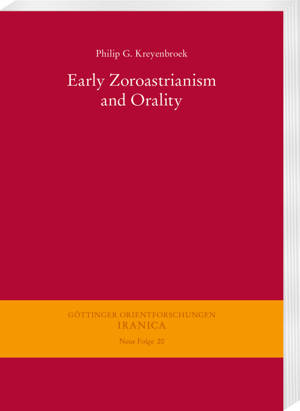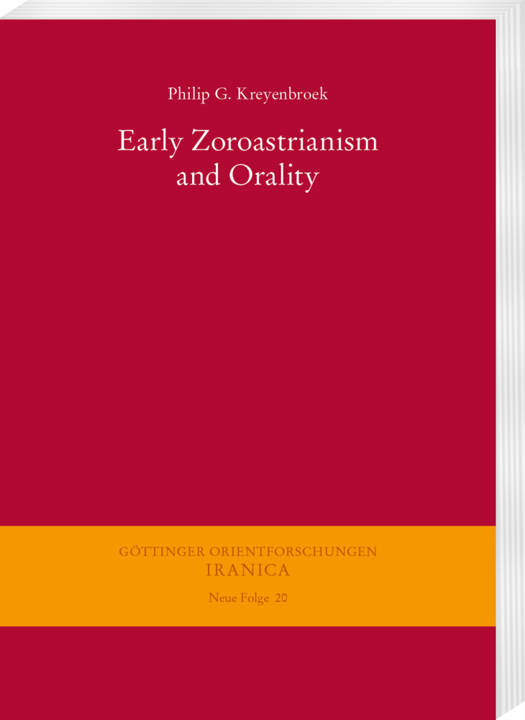
- Afhalen na 1 uur in een winkel met voorraad
- Gratis thuislevering in België vanaf € 30
- Ruim aanbod met 7 miljoen producten
- Afhalen na 1 uur in een winkel met voorraad
- Gratis thuislevering in België vanaf € 30
- Ruim aanbod met 7 miljoen producten
Zoeken
Omschrijving
Early Zoroastrianism was transmitted orally, as is now generally accepted by scholars. There is no consensus, however, regarding the implications of that insight. The few scholars who have referred to the question so far generally based their approach on the assumption that academic theories on orality are valid for all forms of oral transmission, which is demonstrably untrue. Moreover, whilst progress has been made on individual aspects of Avestan texts, the early history of Zoroastrianism as such has received scant attention in recent decades. Philip G. Kreyenbroek has combined an almost life-long study of Zoroastrianism with empirical research on the oral traditions of two modern Iranian religious groups. In this book he applies his first-hand knowledge of the workings of oral transmission and his familiarity with early Zoroastrian priestly practices to extant Avestan texts in order to uncover their history in the light of their earlier oral transmission. Taking into account a number of recent discoveries by other scholars, the work arrives at new conclusions about the genesis and early development of the Zoroastrian tradition.
Specificaties
Betrokkenen
- Auteur(s):
- Uitgeverij:
Inhoud
- Aantal bladzijden:
- 309
- Taal:
- Engels
- Reeks:
- Reeksnummer:
- nr. 20
Eigenschappen
- Productcode (EAN):
- 9783447120463
- Verschijningsdatum:
- 8/11/2023
- Uitvoering:
- Paperback
- Formaat:
- Trade paperback (VS)
- Afmetingen:
- 213 mm x 23 mm
- Gewicht:
- 1065 g

Alleen bij Standaard Boekhandel
+ 349 punten op je klantenkaart van Standaard Boekhandel
Beoordelingen
We publiceren alleen reviews die voldoen aan de voorwaarden voor reviews. Bekijk onze voorwaarden voor reviews.








